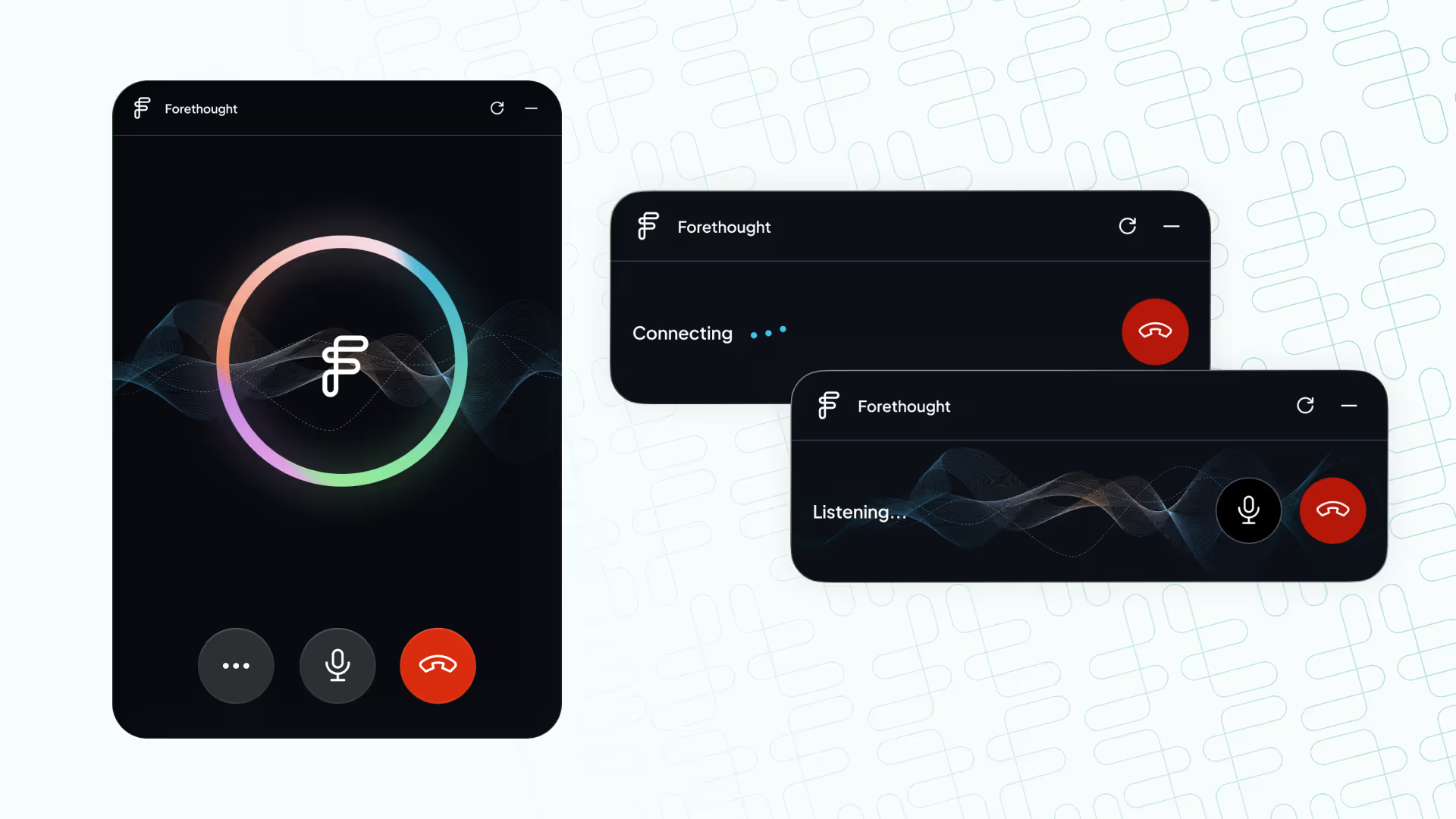When you have a growth spurt, your support needs one too. But if your product is self-serve, it’s hard to plan accordingly. Users can sign up anytime and ticket numbers can jump without warning.
Unexpected volume becomes problematic when your support team can’t keep up. When ticket volume starts to create a backlog, users get frustrated, and your hard-earned growth stalls.
Hiring more agents as a response can be tricky and expensive because humans' capacities vary widely. One survey shows agents can typically handle between 25 and 70 issues a day, whereas another reports the number at 21. AI, on the other hand, can predictably bridge this gap without the need to hire.
Why traditional support breaks under PLG pressure
Support looks different in product-led growth (PLG). In a sales-led model, there are guardrails. Humans onboard users. Support teams can more easily predict ticket volume because account managers are there to answer questions, guide adoption, and surface problems before they become tickets.
PLG removes those guardrails. Anyone can sign up, start using the product, and expect everything to work immediately. That means support isn’t just a safety net anymore. It’s part of the product itself. And when it doesn’t work, users don’t just think support is broken. They think the product is broken.
Take a hypothetical SaaS product. It launches a freemium tier and goes viral on Product Hunt. The support team gets swamped with password reset requests, all tied to verification emails going to spam. Even after publishing help center articles, users can’t get in and continue to open tickets.
In another scenario, new users are confused about how to share their dashboards. The product in question has two similar options: share a live link or export a PDF. But they’re in the same dropdown, with nearly identical icons. Users repeatedly misunderstand the difference. Support has to jump in every time to clarify, undo mistakes, and explain the intended workflow.
In a sales-led model, neither issue would’ve escalated. A person would’ve sent the login email, and a rep would’ve walked through sharing. But in PLG, support takes on that role. And if it can’t scale automatically with user growth, the product experience breaks no matter how good the product is.
How AI helped ActiveCampaign handle 18,000 tickets per month
Support doesn’t always break with a big bang. Sometimes, it’s a slow build—missed replies, inconsistent answers, too many repeated tasks—until the system just can’t keep up. In ActiveCampaign’s case, customer experience needs grew over time, and eventually, their previous automation platform couldn’t scale with their needs.
Deflection was low, and complex issues slipped through the cracks. Routing wasn’t consistent, and agents spent too much time repeating answers instead of solving meaningful problems. They needed a partner who could help them scale support intelligently, not just add another layer of automation, so they chose Forethought.
AI eliminates repetitive questions automatically
Forethought’s AI-powered chat agent, Solve, is designed to deflect tickets at scale. Instead of offering static help center articles in the hopes that a customer will figure out a solution themselves, Solve generates conversational answers using ActiveCampaign’s help center, internal documentation, and historical ticket data. It continuously improves over time based on real outcomes, not just clicks.
For ActiveCampaign, they are seeing a 60%+ deflection on Solve chats year-to-date. Additionally, since launching Forethought, there’s been a 46% average weekly reduction in chat tickets created in Zendesk. This has been a huge relief for their team and a faster path to answers for customers.
“Forethought has fundamentally shifted how we approach customer experience. Its automation and routing capabilities let us lean on AI to deliver faster solutions to our customers across a wide range of queries, freeing up our team to focus on the higher-value, more human conversations that really matter.”
— Phil Lynch, ActiveCampaign
Forethought worked closely with ActiveCampaign’s ops and CX teams to train Solve on real tickets and refine workflows based on weekly feedback. They even worked with Forethought to help set up the look and feel of their AI agent to match their brand and tone requirements.
The result was a smart, responsive support channel that scaled without adding headcount and felt like a natural part of the product.
AI routes complex issues to the right expert immediately
The next challenge was getting high-priority tickets that still required a human to the right place. They needed to be prioritized, routed, and handled by the right person automatically.
Forethought Triage reviews every customer message in ActiveCampaign, assessing sentiment, intent, and topic. The example below illustrates this in action. This becomes especially valuable as it enables ActiveCampaign to track sentiment across the entire interaction lifecycle. For instance, a customer may start out neutral, but if the experience deteriorates, the sentiment will shift to negative in real time. This allows their team to set up targeted triggers in Zendesk to flag at-risk tickets early. Conversely, if an interaction trends positively, they can easily identify it and recognize the agent for a job well done.
These contextual signals let the system decide not only what the ticket is about but also how it should be handled and by whom.

Triage goes beyond basic tagging by interpreting tone, sentence structure, and nuance. In ActiveCampaign’s case, it can differentiate between a critical billing issue and a routine feature request without human input. This enables the team to build tailored alerts, triggers, and automations in Zendesk - ensuring customers are routed to the right person from the outset, rather than being passed between teams through unnecessary escalations.
AI helps agents solve problems during conversations
When customers were speaking with an ActiveCampaign agent, Forethought’s AI-powered tools also worked in the background to quickly provide agents with correct, consistent information.
They used Forethought Assist, built to support agents in real-time while they’re handling conversations that require a human touch. In the example below, you can see how it responds to human agents as they talk to a customer. As the human agent types, Assist finds the most relevant information without the agent needing to search through a database or switch tabs.

For ActiveCampaign, Assist reduced response times by 27% and replies per ticket by 8%, which ultimately reflected well when it came to their customer’s perception.
AI reveals the content gaps causing repeat tickets
Last but certainly not least, Forethought helped ActiveCampaign intelligently improve their internal process as well as other self-service support tools, like their help center.
Forethought Discover analyzed support conversations to identify exactly where knowledge base content is missing or ineffective. Unlike basic analytics, which just counts ticket topics, Discover analyzes the actual content of customer interactions to find specific documentation gaps and suggest copy to improve them.

For ActiveCampaign, Discover analyzed all support conversations, giving the team clear visibility into the topics customers are asking about. This has helped to identify gaps in their knowledge base and pinpoint areas where sentiment is lower than desired. Having this data readily accessible, rather than manually reviewing tickets, enables a far more proactive approach. They are able to quickly spot content gaps and process inefficiencies, putting clear next best actions in place aligned to customer painpoints, helping their team scale effectively as their customer base grows.
AI-powered support increases retention rates
When you support users quickly and effectively, they’re more likely to stick around, try new features, and eventually move to a paid plan. That directly impacts retention, conversion, and lifetime value, which are core metrics for any product-led growth strategy.
Most companies rely solely on support teams to interact with customers using free accounts. When converting free users into paying customers, sales takes the lead 23% of the time.
But upsells are a different story. Sales and support take on 58% of the upsell effort combined, highlighting just how critical ongoing, human-backed support is to growing account value over time. It’s not just about saving time—it’s about scaling the experience users expect without overloading your team.
Build a support strategy that anticipates your future growth
Most PLG companies can’t afford to scale their support team at the same pace as their user base. And they shouldn’t have to. The right AI system lets you serve ten times as many users with the team you already have.
Forethought does exactly that. It deflects repetitive tickets with accurate answers and supports agents in real-time when human help is needed. That means fewer delays, less churn, and more users sticking around long enough to upgrade.
Request a demo and see how our AI-powered agents can help your PLG business grow.
Hashtags blocks for sticky navbar (visible only for admin)
{{resource-cta}}
{{resource-cta-horizontal}}
{{authors-one-in-row}}
{{authors-two-in-row}}
{{download-the-report}}
{{cs-card}}






